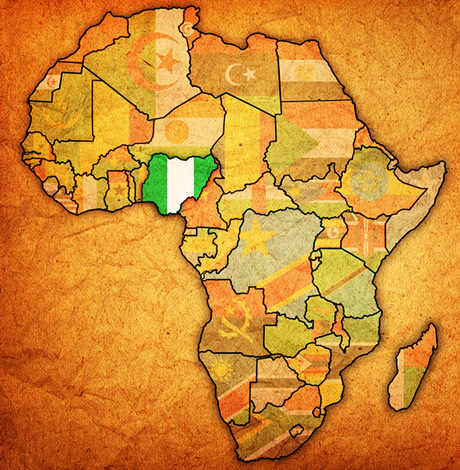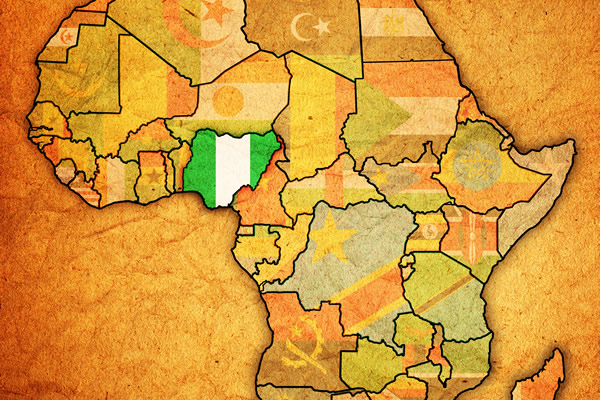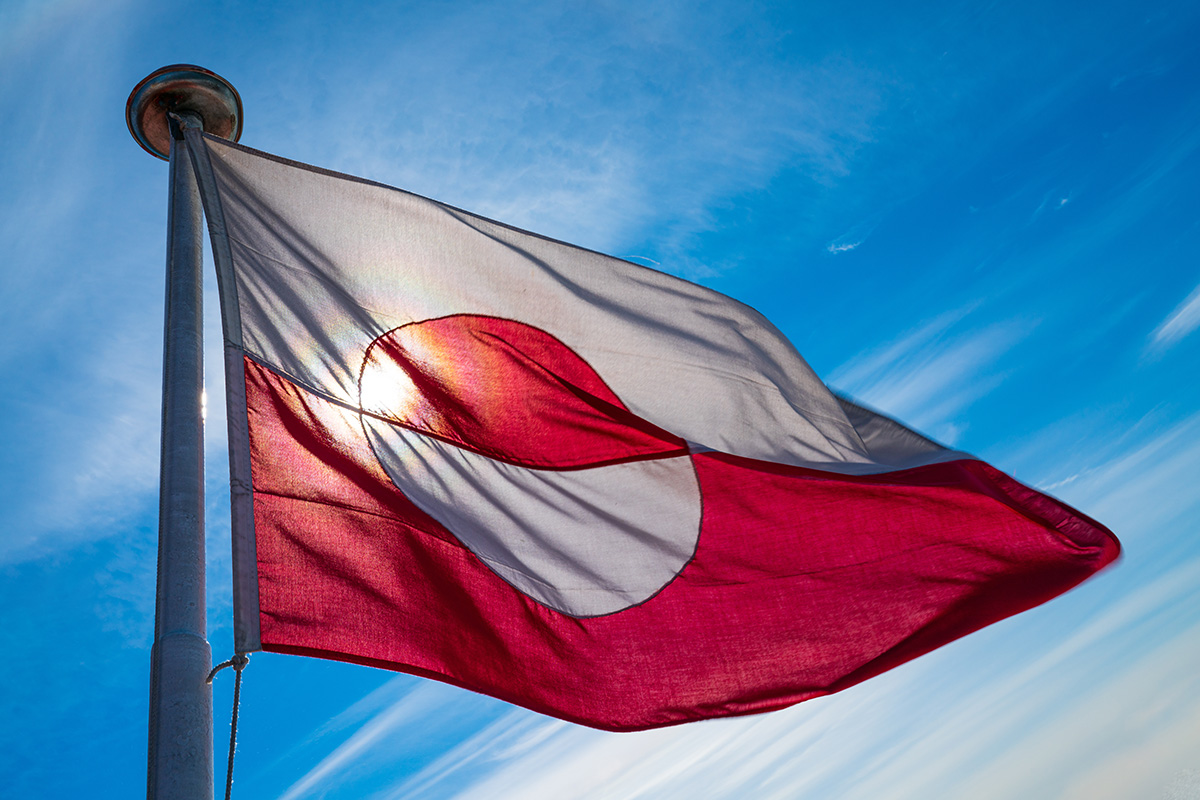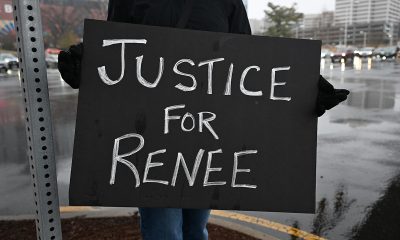Opinions
Lesbian Nigerian immigrant on struggle to come out
‘I wondered if I was the only African lesbian in the world’


In addition to the challenges that many Americans face when coming out, first generation immigrants often face additional hardships.
There are many challenges for LGBT people whose sexual orientation or gender identity intersects with other identities, such as race, gender, or nationality. In addition to the challenges that many Americans face when coming out, first generation immigrants often face additional hardships.
I recently discussed this topic with a lesbian, Nigerian immigrant, who agreed to speak with me under the condition of anonymity. She is a 34-year-old woman who immigrated from Nigeria as a teenager. She attended college and graduate school, lives in the D.C. area, and is employed in a professional capacity.
“I’m doing this anonymously because being Nigerian and gay, it’s a safety issue,” she said. “I also want to spare my parents.”
Her parents have not been accepting of her sexuality. “When I first came out to someone in my family, it didn’t go well,” she noted. “I broke up with my girlfriend, retreated, and started dating men. I didn’t expect the extreme reaction from my family. When my family learned about my being gay, there were threats.”
My source also discussed her internal struggle with being Nigerian and lesbian. “When I came to America, I had no idea I was a lesbian. When I was in college, I saw a woman’s body and started thinking and fantasizing about it. Because I didn’t have these feelings when I was younger, I thought it was something America did to me.”
She went through periods of identifying as bisexual, then lesbian, and, subsequently, taking it back before embracing her identity as a lesbian. She dated men and explored her feelings for women in college, but her first serious relationship was with a woman, while she was in graduate school. She has also been in a long-term relationship with a man, but did not feel the same level of passion and attraction that she does with women.
“Where I come from, my value as a woman is tied to getting married and having a kid,” she told me. Most people believe “that being gay is an idea that came from America, from the West. I have struggled with the idea that I can’t be lesbian and African. I didn’t have a frame of reference.” She asked herself, “How am I lesbian and African and an immigrant. I wondered if I was the only African lesbian in the world.”
My source has been disowned and re-owned and disowned again by her parents. When her family gets together for the holidays, they usually do not invite her. When she sends her parents texts, they often do not respond. She also was fearful of “disappointing my parents so bad that they would want to hurt themselves.”
Part of her growth process has been that even “when my parents act like they don’t love me, it doesn’t cause me to act like I don’t love them. They helped me out so much.” She believes that “they feel betrayed that I chose something else over them and if I really love them and wasn’t so selfish, I would suck it up and marry a man.”
“To cope, I have grown a lot spiritually. For years, I thought about hurting myself. That’s the damage that this has done. The lying, the hiding, the fear. I did some therapy, but what has really helped me is my spirituality. I’m seeing in the eyes of God, I am gay and African and a woman. My approval rests less and less with my family and more with God.”
She has also been burdened by relatives who have told her that she can never go back to visit Nigeria. Over the years, she has come to realize that this is not true. One of her cousins in Nigeria knows that she is a lesbian and has said she can stay with her family. Another aunt has expressed support and wants to meet her girlfriend, who is also a first generation African immigrant. She now realizes that she has “some support if I live in my truth.”
She did this interview because she wants “people to know they are not alone. It’s possible to be lesbian and African and out. [She is out to family and friends, but has safety concerns about identifying herself in print.] I have a really good life. Who knows what’s going to happen next? I don’t have to choose between being African and my sexuality or between being African and being in a relationship.”
She is willing to talk directly to other LGBT immigrants who are struggling with similar circumstances. She can be reached by sending a request to me or to the Blade.
Lateefah Williams’ biweekly column, ‘Life in the Intersection,’ focuses on the intersection of race, gender and sexual orientation. She is a former president of the Gertrude Stein Democratic Club. Reach her at [email protected] or follow her on Twitter @lateefahwms.

January arrives with optimism. New year energy. Fresh possibilities. A belief that this could finally be the year things change. And every January, I watch people respond to that optimism the same way. By adding.
More workouts. More structure. More goals. More commitments. More pressure to transform. We add healthier meals. We add more family time. We add more career focus. We add more boundaries. We add more growth. Somewhere along the way, transformation becomes a list instead of a direction.
But what no one talks about enough is this: You can only receive what you actually have space for. You don’t have unlimited energy. You have 100 percent. That’s it. Not 120. Not 200. Not grind harder and magically find more.
Your body knows this even if your calendar ignores it. Your nervous system knows it even if your ambition doesn’t want to admit it. When you try to pour more into a cup that’s already full, something spills. Usually it’s your peace. Or your consistency. Or your health.
What I’ve learned over time is that most people don’t need more motivation. They need clarity. Not more goals, but priority. Not more opportunity, but discernment.
So this January, instead of asking what you’re going to add, I want to offer something different. What if this year becomes a season of no.
No to things that drain you. No to things that distract you. No to things that look good on paper but don’t feel right in your body. And to make this real, here’s how you actually do it.
Identify your one true priority and protect it
Most people struggle with saying no because they haven’t clearly said yes to anything first. When everything matters, nothing actually does. Pick one priority for this season. Not 10. One. Once you identify it, everything else gets filtered through that lens. Does this support my priority, or does it compete with it?
Earlier this year, I had two leases in my hands. One for Shaw and one for National Landing in Virginia. From the outside, the move felt obvious. Growth is celebrated. Expansion is rewarded. More locations look like success. But my gut and my nervous system told me I couldn’t do both.
Saying no felt like failure at first. It felt like I was slowing down when I was supposed to be speeding up. But what I was really doing was choosing alignment over optics.
I knew what I was capable of thriving in. I knew my limits. I knew my personal life mattered. My boyfriend mattered. My family mattered. My physical health mattered. My mental health mattered. Looking back now, saying no was one of the best decisions I could have made for myself and for my team.
If something feels forced, rushed, or misaligned, trust that signal. If it’s meant for you, it will come back when the timing is right.
Look inside before you look outside
So many of us are chasing who we think we’re supposed to be— who the city needs us to be. Who social media rewards. Who our resume says we should become next. But clarity doesn’t come from noise. It comes from stillness. Moments of silence. Moments of gratitude. Moments where your nervous system can settle. Your body already knows who you are long before your ego tries to upgrade you.
One of the most powerful phrases I ever practiced was simple: You are enough.
I said it for years before I believed it. And when I finally did, everything shifted. I stopped chasing growth just to prove something. I stopped adding just to feel worthy. I could maintain. I could breathe. I could be OK where I was.
Gerard from Baltimore was enough. Anything else I added became extra.
Turning 40 made this clearer than ever. My twenties were about finding myself. My thirties were about proving myself. My forties are about being myself.
I wish I knew then what I know now. I hope the 20 year olds catch it early. I hope the 30 year olds don’t wait as long as I did.
Because the only way to truly say yes to yourself is by saying no first.
Remove more than you add
Before you write your resolutions, try this. If you plan to add three things this year, identify six things you’re willing to remove. Habits. Distractions. Commitments. Energy leaks.
Maybe growth doesn’t look like expansion for you this year. Maybe it looks like focus. Maybe it looks like honoring your limits. January isn’t asking you to become superhuman. It’s asking you to become intentional. And sometimes the most powerful word you can say for your future is no.
With love always, Coach G.
Gerard Burley, also known as Coach G, is founder and CEO of Sweat DC.
Greenland
The Greenland lesson for LGBTQ people
Playbook is the same for our community and Europeans

I understand my own geopolitical limits and don’t pretend to know how Europeans should respond to U.S. threats to seize Greenland or retaliate against anyone who opposes them. However, as I mentioned in March, it’s clear that for Europeans and LGBTQ+ people alike, hug-and-kiss diplomacy is over.
In practice, that means responding to the U.S. administration’s provocations with dialogue, human‑rights rhetoric, and reasoning may now be counterproductive. It looks weak. At some point, Europeans will have to draw a line and show how bullying allies and breaking international agreements carry a cost — and that the cost is unpredictable. On the surface, they have few options; like LGBTQ+ communities, they are very behind in raw power and took too long to wake up. But they still have leverage, and they can still inflict harm.
Maybe it is time for them to call the bluff. America has a great deal to lose, not least its reputation and credibility on the world stage. Stephen Miller and Pete Hegseth, with all their bravado, obviously underestimate both the short‑ and long‑term geopolitical price of ridicule. Force the United States to contemplate sending troops into an ally’s territory, and let the consequences play out in international opinion, institutions, and markets.
In the United States, LGBTQ+ communities have already endured a cascade of humiliations and live under constant threat of more. In 2025 our symbols and heroes were systematically erased or defaced: the USNS Harvey Milk was quietly renamed after a straight war hero, Admiral Rachel Levine’s title and image were scrubbed from official materials, Pride flags were banned from public buildings, World AIDS Day events were defunded or stripped of queer content, the Orlando memorial and other sites of mourning were targeted, the U.S. lead a campaign against LGBTQ+ language at the U.N., and rainbow crosswalks were literally ripped up or painted over. We cannot simply register our distress; we must articulate a response.
In practice, that means being intentional and focused. We should select a few unmistakable examples: a company that visibly broke faith with us, a vulnerable political figure whose actions demand consequences, and an institution that depends on constituencies that still need us. The tools matter less than the concentration of force — boycotts, shaming, targeted campaigning all qualify — so long as crossing certain lines produces visible, memorable costs.
A friend suggested we create what he called a “c***t committee.” I liked the discipline it implies: a deliberate, collective decision to carefully select a few targets and follow through. We need a win badly in 2026.
These thoughts are part of a broader reflection on the character of our movement I’d like to explore in the coming months. My friends know that anger and sarcasm carried me for a long time, but eventually delivered diminishing returns. I am incrementally changing these aspects of my character that stand in the way of my goals. The movement is in a similar place: the tactics that served us best are losing effectiveness because the terrain has shifted. The Greenland moment clarifies that we must have a two-pronged approach: building long-term power and, in the short term, punching a few people in the nose.
Opinions
Media obsess over ‘Heated Rivalry’ sex but ignore problem of homophobia in sports
4 major men’s leagues lack gay representation 13 years after Jason Collins came out

The mainstream media are agog over “Heated Rivalry,” the surprise hit HBO Max limited series about two professional hockey players who fall in love.
The show’s stars, Connor Storrie (Ilya) and Hudson Williams (Shane), are everywhere — red carpets, award shows, morning news and late night shows. Female fans lined up for hours to catch a glimpse of Storrie, who appeared on the “Today” show last week.
The interviews and coverage predictably involve lots of innuendo and snickering about the graphic sex scenes in the show. Storrie and Williams have played coy about their real-life sexual orientation, a subject of debate among some gay fans who would prefer they own their sexuality if, in fact, they are gay.
But the big issue ignored by the media that the show tackles is the crippling effect of homophobia and the closet — not just on professional athletes but on anyone who isn’t comfortable being out at work. And it’s a growing problem given the hostile Trump administration. Attacks on LGBTQ people and the roll back of DEI and related protections are driving many Americans back into the closet, especially in D.C.’s large federal workforce.
And the mainstream media seem totally unaware that there has never been an openly gay NHL player. Hell, there’s never even been a retired NHL player who came out.
It’s a sad fact that I would not have predicted 13 years ago when Jason Collins bravely came out publicly while playing in the NBA, the first male athlete in the big four U.S. sports to do so. His announcement was widely covered in the mainstream media and Collins was even named to Time magazine’s “100 Most Influential People” list in 2014.
Then in February 2014, Michael Sam became the first openly gay player to be drafted into the NFL. He was released before the season began and did not play. But still, Sam’s decision to come out was celebrated. It felt like professional male sports was changing and finally shaking off its ingrained homophobia. Many of us awaited a flood of young professional athletes coming out publicly. And we waited. And waited. Then, seven years later, in June 2021, Carl Nassib came out, becoming the first active NFL player to do so. He was with the Las Vegas Raiders at the time and also became the first out player to play in the playoffs. He was released in the offseason and picked up by the Tampa Bay Buccaneers in 2022 and retired the following year.
And that is the short history of out professional male athletes in the big four U.S. sports. (Women’s sports is a different story with many examples of out lesbian and bi players.)
Sure, some pro athletes have come out after retiring, most notably Billy Bean, who went on to a long and successful career advocating from within for gay representation in Major League Baseball as the league’s vice president and ambassador for inclusion and later as senior vice president and special assistant to the commissioner.
But that’s a sorry record and professional sports leagues should redouble their efforts at making gay players (and fans) feel welcome. From fully embracing Pride nights again to adopting zero tolerance policies for hate speech, there’s much more work to be done to make it easier for pro male athletes to come out.
“Heated Rivalry” star Williams recently told an interviewer that he has received private messages from closeted active pro athletes in multiple sports who don’t feel they can come out. How sad that in 2026, even the most successful (and wealthy) among us still feel compelled to hide in the closet.
Let’s hope that “Heated Rivalry,” which has been renewed for a second season, sparks a more enlightened conversation about the closet and the need to foster affirming workplaces in professional sports and beyond.
Kevin Naff is editor of the Washington Blade. Reach him at [email protected].
















